Judy Tsuei is the founder of Wild Hearted Words, a woman-of-color strategic branding and content marketing agency specializing in health, wellness, and innovative tech brands. She has been featured in Fast Company, BBC Travel, and MindBodyGreen. In 2021, she was rated one of the top mentors with the San Diego chapter of the Founder Institute, the world’s largest pre-seed accelerator program and in 2019, the Rising Tide Society nominated Judy as a “20 On The Rise” Entrepreneur. Judy applied her expertise as a mindfulness instructor and yoga teacher to publish the book, The Little Book of Tibetan Rites and Rituals (Ulysses Press, 2022). She is also the host of the highly-rated F*ck Saving Face podcast that advocates for Asian American mental and emotional health by breaking through taboo topics. Judy is a sought-after speaker and panelist who leads meaningful conversations on diversity, equity and inclusion through the power of storytelling.
What does “entrepreneurship” mean to you?
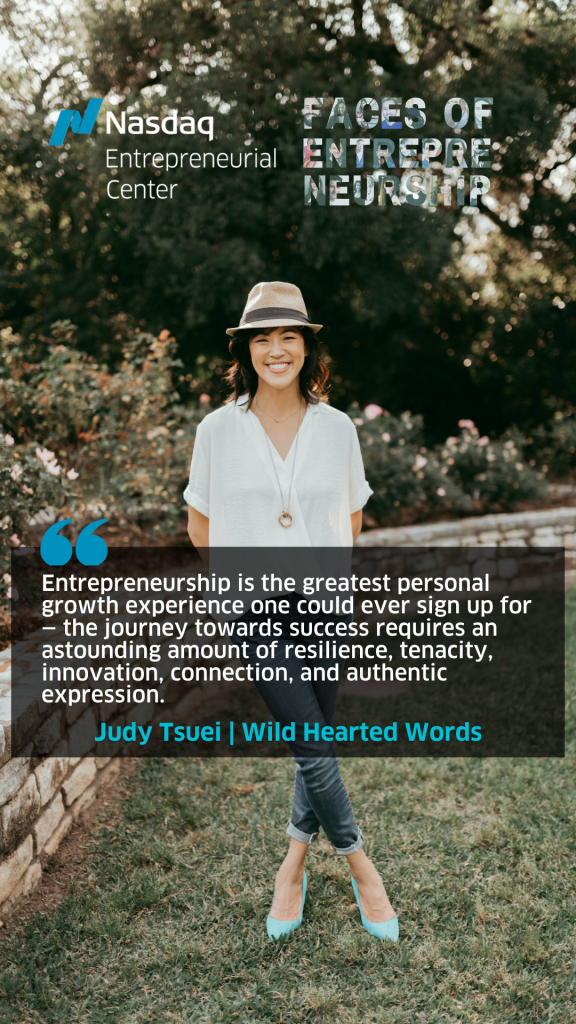 Judy Tsuei: Entrepreneurship is the greatest personal growth experience one could ever sign up for — the journey towards success requires an astounding amount of resilience, tenacity, innovation, connection, and authentic expression. Building a successful company that creates meaningful impact is largely dependent upon the capacity of the founder to expand as a person and a leader. It’s for the bold, the brave, the believers, the risk-takers, and the ones who desire to tread a different path. Entrepreneurship is an exciting adventure written chapter-by-chapter.
Judy Tsuei: Entrepreneurship is the greatest personal growth experience one could ever sign up for — the journey towards success requires an astounding amount of resilience, tenacity, innovation, connection, and authentic expression. Building a successful company that creates meaningful impact is largely dependent upon the capacity of the founder to expand as a person and a leader. It’s for the bold, the brave, the believers, the risk-takers, and the ones who desire to tread a different path. Entrepreneurship is an exciting adventure written chapter-by-chapter.
Tell us about your first experience with entrepreneurship.
JT: While growing up, my immigrant parents owned an aquarium store and a construction business. We spent the majority of our childhood in a Toyota minivan, driving across multiple Los Angeles freeways, in order to get to different suppliers, vendors, retailers, and clients. My parents almost went bankrupt in my teens, struggling through $100,000s in debt, which meant that we sometimes slept in a car in a sawdust-filled warehouse, because they were too exhausted from working to drive the 45-minutes home. I remember helping my mother clean fish tanks, trailing behind my father as he talked to wealthy clients about house remodels, and still getting the phone lines cut at home for late payments. Despite all this, I still chose to pursue entrepreneurship rather than sticking with the tried-and-true corporate career. Doing so brought early success as a copywriting consultant in my mid-20’s for Fortune 500 companies, which then gave me the opportunity to live and work internationally as a both a consultant and a travel writer. I have loved being part of teams, while also having the freedom to create my own rules.
What is your company’s origin story? What is the biggest reason you started your business? What did those early days look like and teach you?
JT: After moving off the island of Kauai on Hawaii, my then-husband and I bought a 1984 Toyota Warrior Winnebago and traveled around the country with our 18-month-old daughter. We ended up in Austin, Texas and decided to end our road trip — especially as I was in the throes of postpartum depression and preparing for an impending divorce. I began my company as an opportunity to take control of my life in every aspect: mentally, emotionally, physically, and especially financially. I wanted to be able to create a new foundation for the heroine’s journey ahead. My company is named “Wild Hearted Words” as a nod to the courage and freedom my craft requires, and because it’s what was needed for me to step into my intrinsic power as both an entrepreneur and a mother.
What do you wish you knew when you started? Is there anything you would do differently?
JT: I wish that I knew to trust myself more and give myself permission to make mistakes that I could learn from. By lengthening my timeline, I would have saved myself from unnecessarily investing in myriad coaches, courses, and services that I didn’t need. I encourage every entrepreneur to read books on paying yourself first, on the power of consistency and focus, and the wisdom that comes from making mistakes.
What does “success” look like for you? We’d love to hear your biggest, boldest dream? What do you think will help you achieve it?
JT: At this point in my life, success would be achieving inner peace as opposed to a sense of striving. Part of my biggest boldest desire is a return to a dream I’ve already lived — moving back to Kauai part of the time. I’d love to continue to travel the world and return to a place where I’ve felt the definition of “home” more than anywhere else on the planet. The other part of my success dream is to bring my memoir to life by publishing an impactful book to amplify awareness about mental and emotional health for Asian Americans and voices of color.
What is your superpower as an entrepreneur? What is your proudest and darkest moment so far?
JT: My superpower resides in the ability to connect the dots — most people would tell you that I’m extremely empathetic, which is also true. It’s what makes me an amplified connector. However, it’s my ability to see the vision and then translate it into tactical marketing strategies that achieves phenomenal results. For those who want to hone this further, start by listening. Listen to yourself, your own guidance and intuition, and then listen to the subtleties of language, intention, meaning with your clients. Key highlights from my journey include the tremendous response I get from clients when they feel genuinely seen and heard. I can sense the relief, the connection, and the spark of motivation when I’m able to crystallize what they’re aiming to achieve that they didn’t have the words to clearly articulate. On the contrary, a low point would be collaborating with a business partner on a live mastermind and self-paced course, only to discover that they began to start a partnership with another venture without informing me in advance, despite my questioning. It seems that every entrepreneur I’ve spoken with and learned from has an experience where they face difficulties in collaboration that have taught them lessons in trust, legal matters, and personal growth.
What are your personal driving principals, your top values?
JT: I believe that core values need to regularly be revisited, because the more life you live, the more you’re asked to evaluate what you stand for and how you show up. I’m driven by the idea of authenticity and meaningful human connection, especially with the growing applications of AI and Web3. I will always be motivated by creativity, by bringing messages to light that need to be expressed, and by creating a better world — from a mental, emotional, and physical health perspective — if I can.
How have your personal principles and values shaped your company’s values and principles? Give us some examples.
JT: Here’s a quandary that often comes up for most entrepreneurs: “I’m being offered a lot of money, but I don’t feel 100% about this client/project/purpose — should I say ‘yes’ or ‘no?’” As a business woman, I’ve had to deal with an array of misogynistic and untoward behavior. While there were clients who could have been beneficial for my bottom line, they were absolutely detrimental to myself and my team. My personal values include being transparent in my approach and communication, as well as living with integrity, so it’s been a practice of nonviolence and respectful boundary setting to say “no” and then to continue to attract better fit opportunities for my business.
What’s it like to work alone or with your partners?
JT: I tend to be an introvert with extroverted tendencies, so I do well when working with others, but especially appreciate my solo time to reflect and replenish. Entrepreneurship is a rich personal learning opportunity, so the more time you’re able to spend with yourself — and thrive — the more you bring that power into larger dynamics.
Do you have a mentor? Tell us about what makes them valuable to you and your business?
JT: I have always surrounded myself with people who have achieved levels of professional or personal success where I would like to be, yet it wasn’t easy to open myself up to a true mentor, because it meant being vulnerable and allowing myself to be truly seen. This applied not only in the moment during whatever phase of my life or work, but also to sharing my vision and dreams for where I’d like to get to. Thankfully, I found a mentor recommended by a friend (after trying out a few that didn’t work) who’s been a champion of mine. Find someone who can balance as much yin as yang energy, where they exude the softer skills life requires for great impact, as well as the force of providing bold feedback and action.
What role does mentorship play in your world (as a mentor or mentee)?
JT: When I began building my team, I created job posts that clearly delineated I would play a mentorship role. It has not only turned out to be amazing, but it has also taught me valuable new perspectives as I guide my team.
Many entrepreneurs continue to perfect their daily routines to support their work and greater vision; would you mind sharing your morning routine or a regular ritual that grounds your work each day?
JT: I’m a single parent of an eight-year-old daughter, which means that I allow myself the flexibility to adapt my schedule to fit the present moment. I do wake up at 5am to exercise. If I have time, I’ll journal in a way that blends gratitude with an attitude that what I desire has already happened, so I can feel what that feels like to already “have” the things I want. From there, I’ll meditate. I’ve blocked certain days for client meetings, but I also surf, so I’ll allow for my days to shift to ensure I have time in nature, which is deeply replenishing. I’m an avid consumer of content, so the day is also filled with audiobooks, podcasts, and books I hold in my hands (as a writer, I will always prefer the touch of paper to a screen). And, my community of strong women and mothers means that there are often trips, shared experiences with our kids, and good meals to bookend the day.
What are you reading or have read?
JT: Every year, I read 50+ books and listen to hundreds of hours of podcasts and audiobooks. One of my favorite thus far has been the memoir, Maybe You Should Talk to Someone. The author, Lori Gottlieb, captures humanity so poignantly (and in her acknowledgments, I discovered we share similar contacts form the Los Angeles writing scene, as well as my book coach from the East Coast).
Where do you go for inspiration?
JT: Travel and nature are my best resources for inspiration. I’m lucky to live by the Pacific Ocean in San Diego, California after living around the world. When I returned from spending time with my daughter internationally in Taiwan, I tallied the number of places we’d been. (I’ve personally lived in more 40 places around the globe.) From having my daughter on Kauai, Hawaii to living in a camper van as we drove across the country to where we are now, I’m lucky to say that my daughter has more stamps on her passport than many kids her age and is the best travel companion. Seeing the world through her eyes is remarkable.
Do you have a favorite quote, mantra, or words of wisdom to get through the tough days?
JT: This quote from Rainer Maria Rilke has always stuck with me: “I beg you, to have patience with everything unresolved in your heart and to try to love the questions themselves as if they were locked rooms or books written in a very foreign language. Don’t search for the answers, which could not be given to you now, because you would not be able to live them. And the point is to live everything. Live the questions now. Perhaps then, someday far in the future, you will gradually, without even noticing it, live your way into the answer.””
That and the oft-quoted John Lennon statement, “Everything will be okay in the end. If it’s not okay, it’s not the end.”
What is a problem that keeps you up at night?
JT: I worry about the advancement of AI with Moore’s Law describing the rapid and exponential pace at which it’s happening, and the fact that this intelligence is learning based on principles rather than data, which means it is closer to consciousness. I hope that, for my daughter’s sake and future generations, humanity can learn how to cultivate greater awareness, empathy, and understanding to know to ask the questions of what we can’t possibly yet know as the power of such advancement continues on.
How do you think about helping others through your work?
JT: As a service-based business, my entire ethos is built upon helping others. In addition, I’ve explored more ways in which I can infuse philanthropy into my work and the boldness to do the right thing, because it’s simply the right thing to do.
What advice do you have for fellow (and aspiring) entrepreneurs building and leading teams?
JT: Start with empathy. Every person you bring on is a human being with an entire life story, history, and goals. Create an environment of open learning, clear communication, and honoring what’s most important for each person involved — because at the end of the day, being able to create a positive impact on both a personal and professional level is a win for everyone!
What kind of an entrepreneur do you want to be known as – as in, what do you want your legacy to be?
JT: My wish is for everyone to have the freedom to become the healthiest and most whole version of themselves. When I was an advanced yoga teacher and holistic practitioner, I would often say in class, “From the beginning of time ever after, there will never, ever be another you — be wildly you.” I hope that through my work, people feel more empowered to shine their light into the world and illuminate opportunities for others to do the same.
Do you have someone you’d like to nominate to be profiled in our Faces of Entrepreneurship series? Please let us know by emailing media@thecenter.nasdaq.org or submit your nomination using this form.
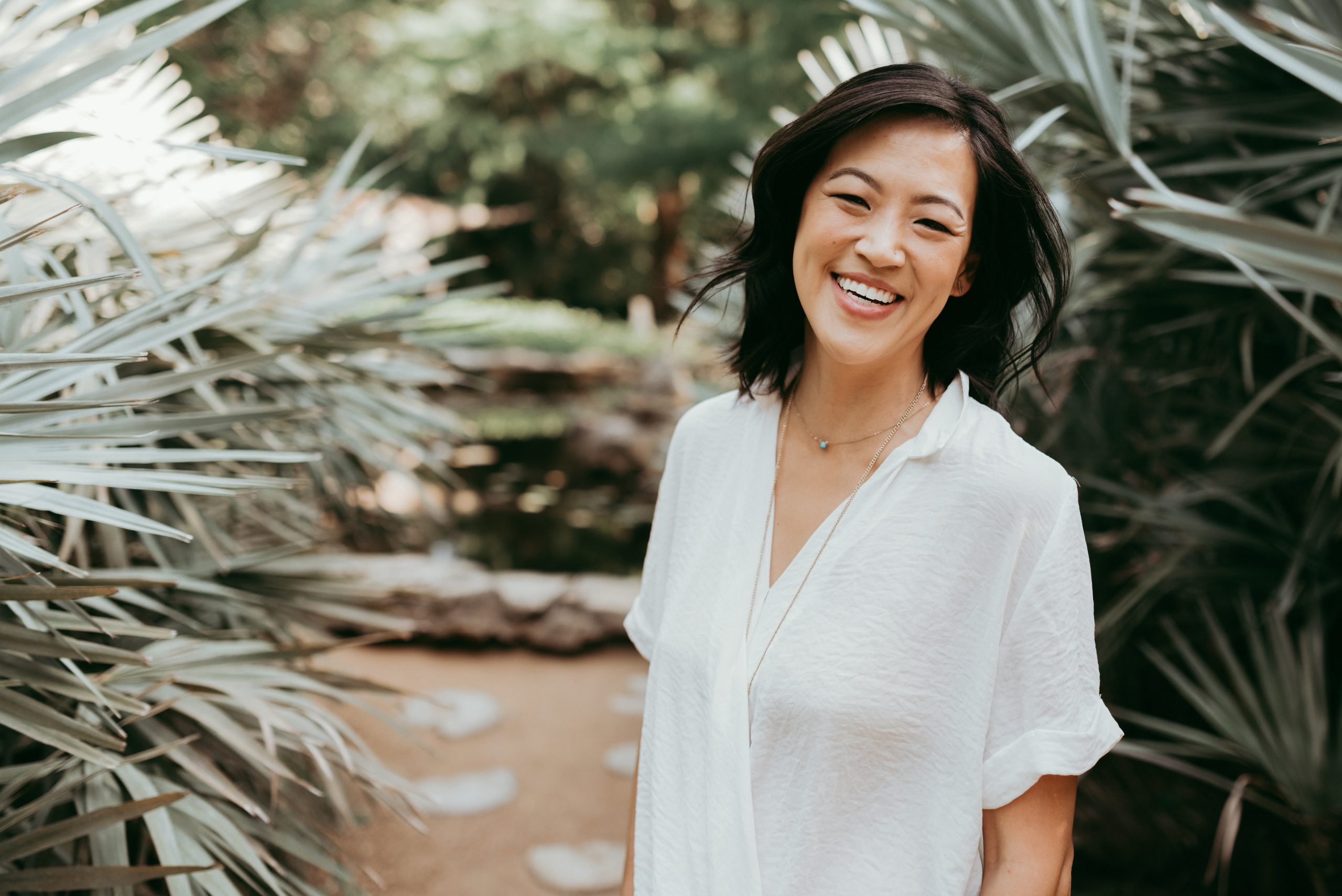
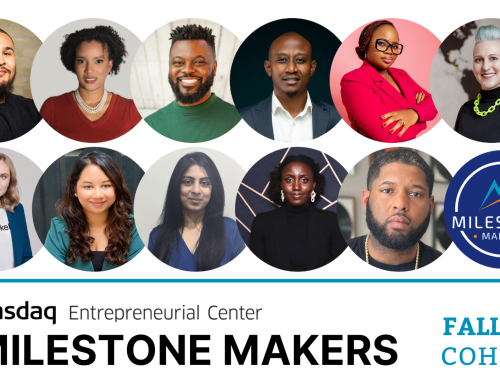
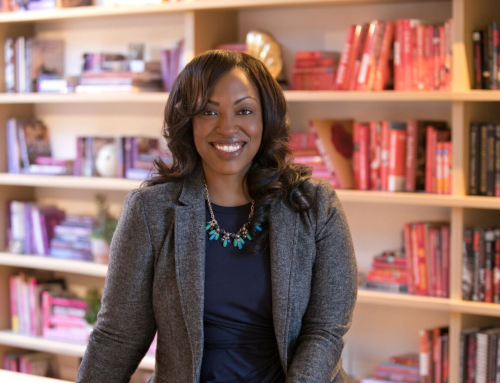
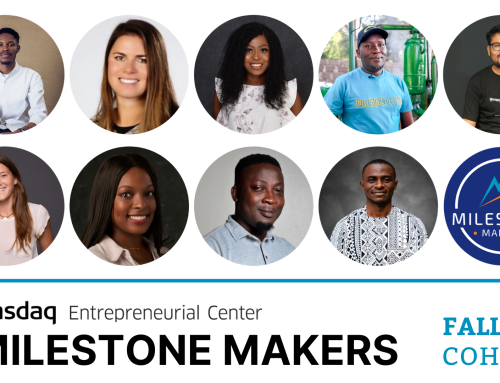
Invite a Friend
Close